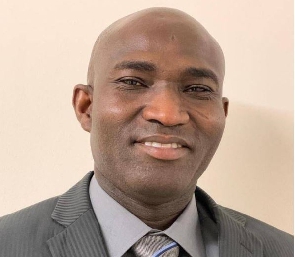Bolgatanga, March 19, GNA - Mr Mahami Salifu, Upper East Regional Minister, on Thursday urged agricultural experts in the country to assist farmers to shift from the traditional method of livestock production to a more innovative and environmentally friendly system. He said the prevailing age-old free-range system should have been replaced by with a confined or semi-confined system because most grazing lands for animals had disappeared due to increase in population resulting in increase in farming activities, over-grazing and erosion. Mr Salifu was speaking at two-day workshop on livestock development for 100 participants including farmers, district directors of agriculture, District co-ordinating directors and staff of the Ministry of Food and Agriculture (MOFA) drawn from the Bawku East, Builsa and Bolgatanga districts.
It was organized under the auspices of MOFA's Livestock Development Project and aimed at reducing poverty, promoting food security and minimizing the importation of livestock and livestock products into the country.
The Regional Minister asked agriculture officers to teach farmers how to prepare hay and to undertake other modern practices in livestock production adding that farmers would stop burning grass in anticipation for fresh forage.
"Since it is usually the highly inflammable grass that is easily set ablaze, there would be less material to burn if this grass is cut and bailed ".
Mr Salifu said there should be a direct connection between livestock development and the restoration of the environment. He urged also urged implementers of agriculture programmes to address the socio-cultural and gender aspects of livestock production rather than concentrating on seeking technical solutions to problems facing the sector.
Mr Salifu cited that women were being forbidden from eating chicken and rearing cattle, and said those cultural values were, perhaps, relevant at the time cattle served only for payment of dowry and for use during traditional sacrifices.
"But now the times have changed and livestock are now reared for income, so the culture must also change accordingly," he said.
Miss Comfort Nyanu, Livestock Development Project Co-ordinator at MOFA headquarters in Accra, said the project was being run on pilot basis in 25 districts of seven regions nationwide.
She said it was aimed at helping farmers to increase smallholder livestock and dairy production thereby increasing the income level. Miss Nyanu said participants were also taken through the preparation of annual work plan and budget that beneficiary districts would be required to present under the project.
They would also discuss livestock and animal healthcare and identify built-in benchmarks for the implementation of the project. The Regional Director of Food and Agriculture, Mr Roy Ayariga, called on participants take the workshop seriously to enable them to assist farmers to address problems affecting livestock production in the region.
Mr Ayariga advised people in the livestock industry to form viable co-operative societies and said the industry had a great potential in the region.
The Bolga Naba, Martin Abilba the III, urged the participants to champion the crusade against bush burning when they return to their respective communities.
"Destroying the vegetation is like destroying ourselves because it adversely affect food and animal production " he said.
Click to view details



Regional News of Friday, 19 March 2004
Source: GNA
















